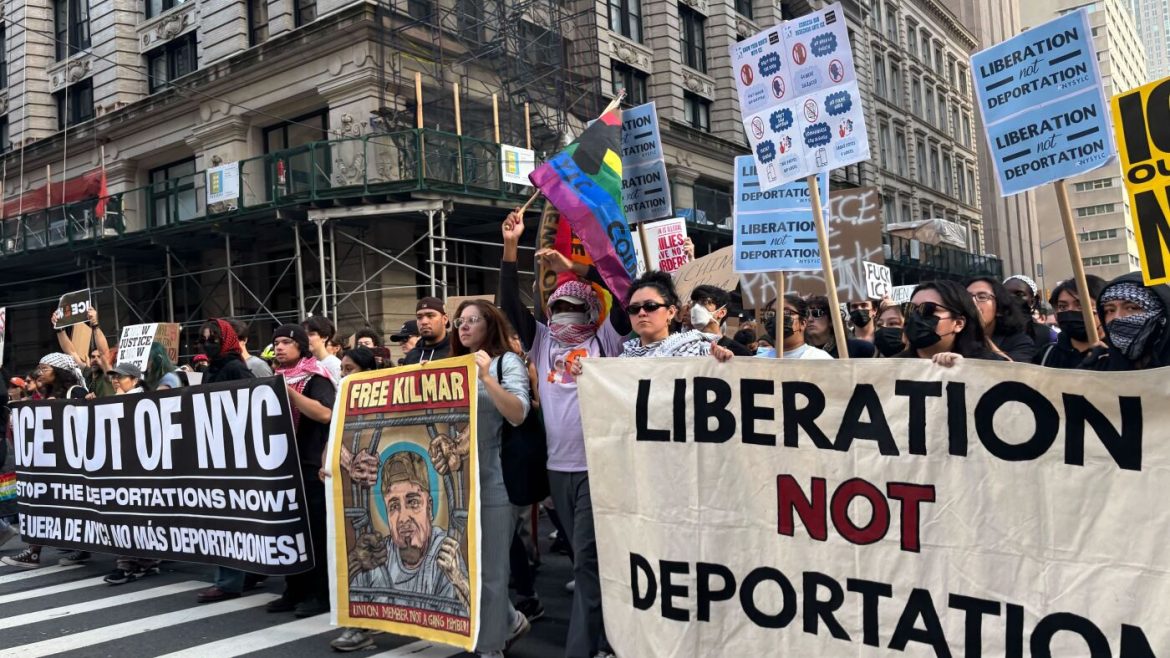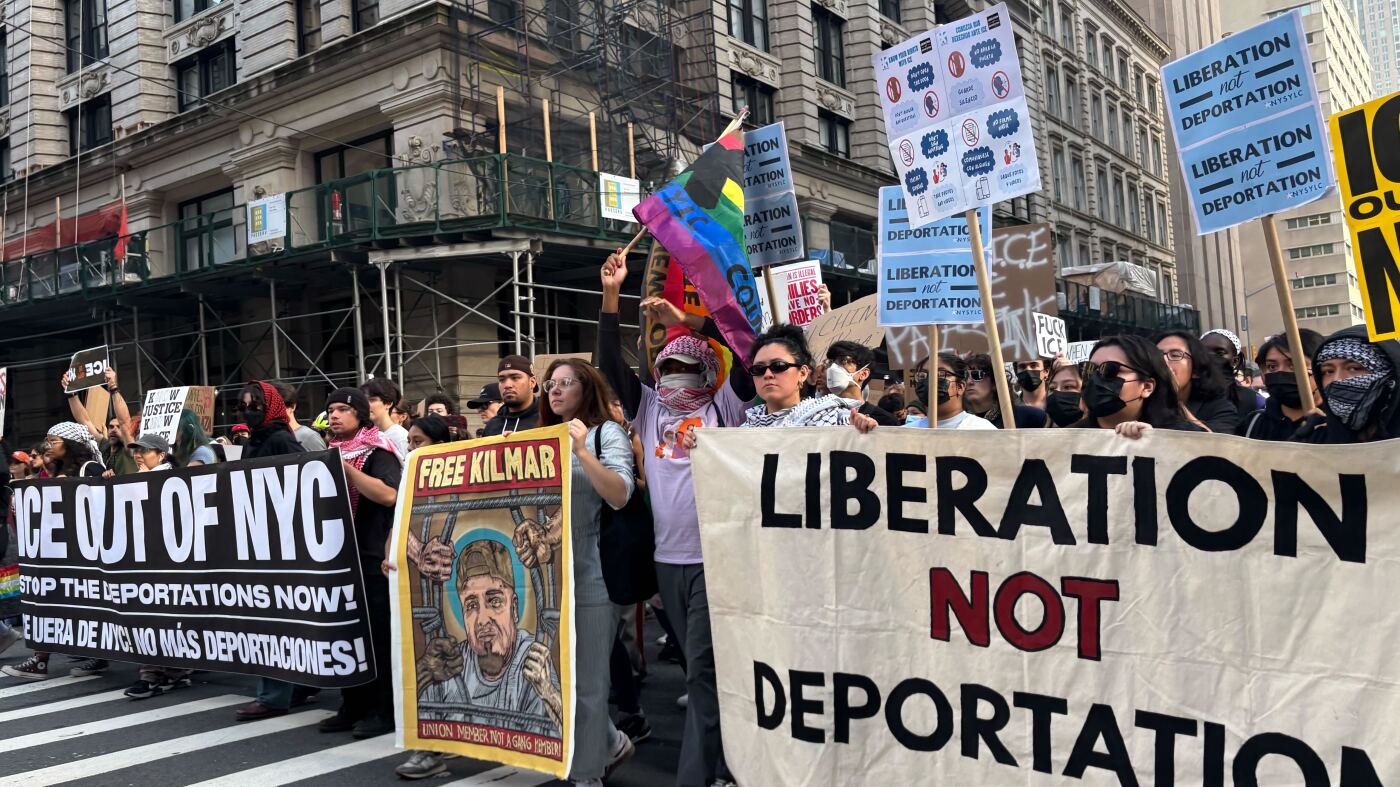The recent surge of protests across the United States against President Donald Trump’s mass deportation policies marks a significant moment in the ongoing national debate over immigration enforcement. These protests, which have erupted in multiple major cities including New York, Chicago, Seattle, and Los Angeles, reflect widespread public dissent not only toward the administration’s stringent immigration raids but also broader concerns about the social and economic consequences of such measures.
Rising Tide of Opposition: Geography and Scale of Protests
Protests over Trump’s immigration policy have rapidly expanded from localized demonstrations to a nationwide movement. Key metropolitan hubs with large immigrant populations have become focal points for rallies, signaling the tangible impact of the policies on communities deeply intertwined with immigrant families. Notably, cities like New York City, Chicago, and Seattle have hosted large-scale rallies, drawing thousands of participants unified in their opposition.
The protests have not been confined to peaceful gatherings; at times, tensions between protesters and immigration enforcement officials have escalated into confrontations, particularly in immigrant-heavy neighborhoods. The involvement of heavily armed, masked agents in workplace raids—such as those at businesses like Ambiance Apparel and Home Depot—has further inflamed public outrage and intensified calls for action against what many perceive as overreach and intimidation tactics.
Government Response and Political Ramifications
The Trump administration’s response to the unfolding protests has been robust in its enforcement strategies. Under pressure from the White House, Immigration and Customs Enforcement (ICE) and other federal agencies have accelerated arrest quotas, aiming for an unprecedented scale of mass deportations. The administration’s stance is rooted in a platform promise to crack down on illegal immigration, framing the raids as necessary for national security and rule of law.
However, this approach has also drawn criticism and resistance across multiple fronts. The deployment of National Guard troops to quell protests, especially in cities like Los Angeles, has sparked debate over militarization and civil liberties. President Trump’s characterization of protests as “invasion” or “third-world lawlessness” has further polarized the discourse, deepening divisions and galvanizing activists.
Broader Social and Economic Context
Beyond the immediate clashes on the streets, the mass deportation policies provoke wider societal concerns. Analysts warn of “catastrophic” economic fallout as immigrant communities contribute significantly to local economies and labor markets. The ripple effects of increased arrests and deportations threaten to disrupt businesses, degrade public trust, and create a chilling effect across workplaces and schools.
Moreover, legislative moves—including efforts to end birthright citizenship and intensified immigration enforcement actions—have amplified fears about the erosion of civil rights and human dignity. The Laken Riley Act and the declaration of a “national emergency” at the southern border underline the administration’s maximalist stance but also raise questions about constitutional boundaries and humanitarian obligations.
The Role of Organized Resistance and Public Mobilization
The protests are part of a broader, organized resistance movement that has gained momentum since the start of Trump’s presidency but intensified under his second-term policies. Online networks using hashtags like #buildtheresistance and #50501 have facilitated rapid dissemination of information and coordination of events, resulting in widespread participation.
Activists emphasize intersectional issues, connecting immigration policy with workers’ rights, freedom of speech, and social justice. The diversity of protestors—from immigrant families to students, labor groups, and civil rights organizations—illustrates the multifaceted nature of opposition to the deportation policies and underscores the unity among different segments of society confronting these challenges.
Toward a Meaningful Conclusion: Reflecting on the Protests’ Impact
The recent swell of protests represents more than just opposition to specific immigration policies; it highlights a profound struggle over the identity and values of the United States. In confronting mass deportations, communities are defending not only individual lives but also fundamental principles of inclusivity, fairness, and human rights.
As these movements continue to gather strength, the administration’s approach faces mounting scrutiny both domestically and internationally. The resilience and persistence of protestors signal that public sentiment is a critical force shaping the political landscape, echoing the underlying tensions between enforcement of law and respect for human dignity.
Ultimately, these protests underscore the deep fractures within the country’s approach to immigration and challenge policymakers to balance security concerns with compassion. The unfolding narrative will likely influence future debates and legislative actions, revealing whether the U.S. can reconcile its enforcement imperatives with its foundational ideals of liberty and justice for all.


